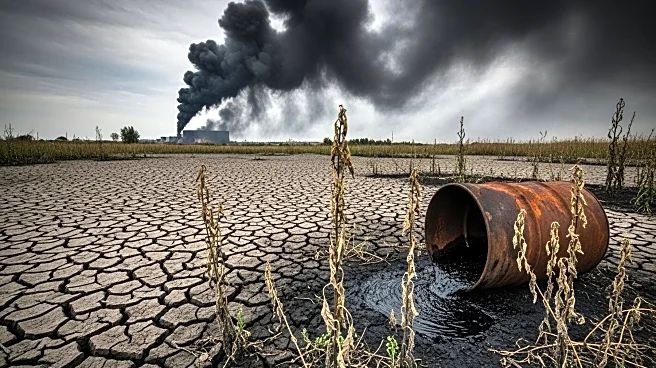What is the story about?
What's Happening?
A recent study published in the journal Fire has revealed significant heavy metal contamination in soils near the Wugong coal fire area in Xinjiang, China. The research aimed to assess the levels of heavy metal pollution and evaluate the ecological risks associated with coal fire-induced soil contamination. The study found elevated concentrations of mercury, cadmium, and other heavy metals, posing serious risks to ecosystems and human health. The research highlights the need for targeted interventions to restore soil health and prevent further ecological degradation.
Why It's Important?
The findings of this study have significant implications for environmental management and policy development in coal fire-affected regions. Identifying key heavy metal pollutants and their spatial distribution provides a foundation for targeted interventions to restore soil health and prevent further ecological degradation. The research underscores the importance of integrating environmental risk assessments into mining practices to ensure sustainable management of affected regions. This is crucial for protecting soil quality and ecological integrity, particularly in areas with intensive coal mining activities.
What's Next?
Future work should focus on long-term monitoring of soil health, deeper soil profiling, and developing new remediation technologies to mitigate the impacts of heavy metal contamination. Evaluating the effectiveness of policies to reduce coal fire hazards and restore ecosystems will be essential for sustainable management. The study emphasizes the need for comprehensive environmental assessments and effective remediation strategies to address the critical environmental challenges posed by coal fires.














